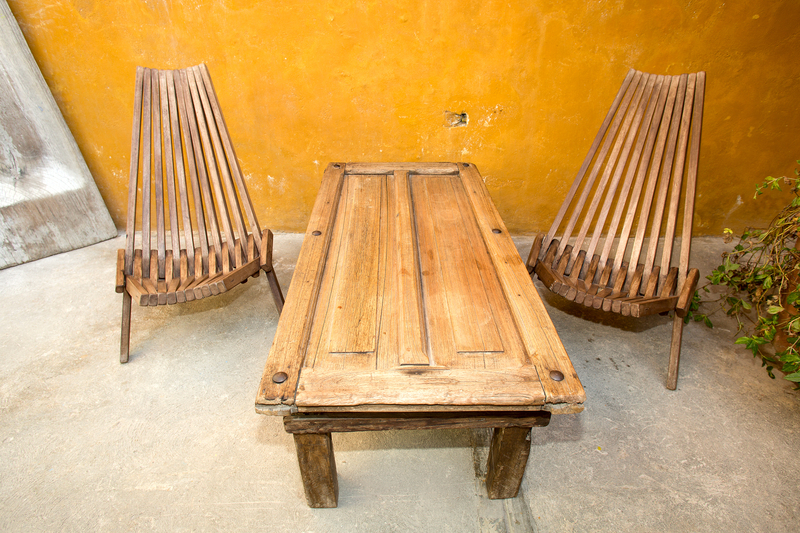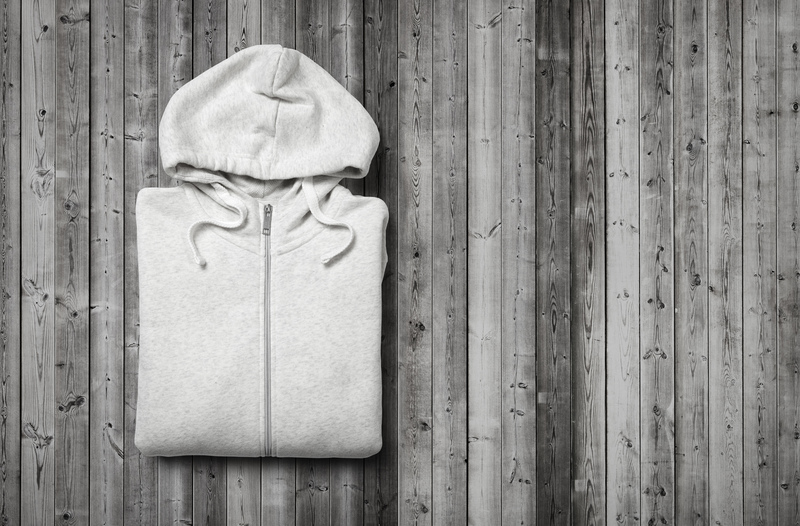Spend Less, Clear More: Bulky Waste Items on the Cheap
Getting rid of bulky waste items like old furniture, broken appliances, worn-out mattresses, and garden debris can be challenging and expensive. But what if you could clear bulky rubbish affordably, helping the environment and saving cash at the same time? Discover how to spend less and clear more when dealing with large domestic or commercial waste!
Why Bulky Waste Removal is Important
Bulky waste--sometimes called large-item refuse--is anything too substantial to fit in your regular bin: sofas, beds, white goods, old carpets, wardrobes, and more. These items take up valuable space, can pose safety hazards, and often cannot be left out for standard rubbish collection.
- Keeping properties tidy
- Preventing environmental damage
- Complying with local waste disposal laws
- Preparing for moves, renovations, and decluttering
Unfortunately, many people overspend on quick but costly solutions. Instead, informed choices can lead to cheaper bulky waste disposal--and sometimes even free removal!

What Counts as Bulky Waste?
Understanding what falls under the category of 'bulky waste' is vital for correct and affordable removal. Typical examples include:
- Sofas, armchairs, dining tables, and full bedroom suites
- Fridges, freezers, washing machines, tumble dryers, dishwashers
- Mattresses, bed frames, and cots
- Rugs, carpets, large boxes, and old exercise equipment
- Garden tools, sheds, play equipment, and fencing panels
- Large electronics like TVs and monitors
Affordable Bulky Waste Collection: Your Best Options
Save money by exploring several different ways to clear large household waste cheaply:
1. Council Bulky Waste Collection Services
Most local councils offer bulky waste removal services. This is often much cheaper than commercial companies, and in certain circumstances, can even be free (especially for those on low incomes, or certain recyclables).
- Check Your Council Website: Prices and items accepted vary. Typical costs range from ?15-?70 based on quantity.
- Book Early: Slots fill up fast, and you may need to wait during busy times.
- Follow Guidelines: Some items (like fridges or hazardous waste) have different rules.
Top tip: If some neighbours are also clearing bulky rubbish, group items together for a single collection fee--potentially halving your costs!
2. Sell, Donate, or Give Away Usable Large Items
One person's trash is another's treasure! Before you pay for disposal, ask:
- Could I sell bulky unwanted items online via platforms such as Gumtree, Facebook Marketplace, or eBay?
- Can I donate to charity? Many organisations like British Heart Foundation, Emmaus, and local reuse charities will collect large furniture and working electricals for free.
- Could I give away items using Freecycle, Freegle, or Nextdoor?
This approach not only clears space without expense, it helps others in need and keeps items out of landfill--an environmental win!
Note: Many charities require items to be in reusable, clean condition and often won't accept mattresses or white goods unless they pass safety checks.
3. Use Recycling Centres and 'Tip' Facilities
Most household waste recycling centres (HWRCs or "tips") accept bulky items for free or very low-cost disposal.
- Check your nearest HWRC's rules and opening hours.
- You will need your own vehicle or someone to help transport the items.
- Some tips require ID or proof of address.
- There may be restrictions on the number of visits per month or on certain waste types (such as plasterboard or asbestos).
For large, heavy, or awkward items, consider asking a friend with a van, splitting petrol costs, or hiring a van for just an hour.
4. Private Bulky Waste Collection Companies
Professional clearance firms are quick and convenient, but prices vary massively. To spend less on bulky waste removal, keep these tips in mind:
- Shop Around: Get 3-5 quotes before booking. Clearly describe your items and request a confirmed price.
- Check for Hidden Fees: Ask about weight surcharges or extra costs for stairs.
- Reputable Operators: Only use companies with a waste carrier's licence. Unlicensed removers may fly-tip, making you liable for fines.
Group items or share collections with neighbours to split costs.
5. Skip Hire: Worth It?
This can be an option for big house clearances or renovations. Skips are convenient but aren't always the cheapest for single items. Maximise your value by:
- Booking the smallest skip needed
- Filling every inch--add garden waste, broken furniture, or renovation debris together
- Checking if skip companies offer 'wait and load' if you have no room for a full-day placement
Remember, certain items (like fridges, tyres, or hazardous goods) often require separate disposal.
Free and Ultra-Low Cost Bulky Waste Disposal Ideas
Community Giveaways & Swaps
Host a local swap event or participate in community 'giveaway' days. Many councils and environmental groups promote such events where residents can exchange or leave large items for collection and rehoming.
Reuse Networks
Reach out to local schools, theatres, charities, or upcyclers who may be actively looking for materials--including damaged goods--for craft or refurbishment projects.
Manufacturer Take-Back Schemes
Major retailers now offer old-for-new collection services when you buy sofas, beds, white goods, or mattresses. IKEA, AO.com, John Lewis and others provide affordable take-back or even free 'trade-in' schemes. Always check at the point of purchase!
What NOT To Do: Avoid Bulky Waste Rip-Offs
Some 'cheap' bulky waste removal shortcuts can cost you more in the long run through fines, safety risks, or environmental harm. Never:
- Pay unlicensed 'man & van' services (they might fly-tip, making you liable)
- Dump items on the street (illegal fly-tipping can mean ?400+ fines and criminal prosecution)
- Burn materials (risk of toxic fumes and neighbour complaints)
How to Prepare Your Bulky Waste for Cheap Disposal
To save time, effort, and money, follow these essential steps before arranging any collection or disposal:
- List and photograph each large item--knowing exactly what needs removing helps get accurate collection quotes or charity assessments.
- Disassemble whenever possible (take furniture apart, remove doors from white goods).
- Store items outside in a dry, accessible place--front garden or driveway if possible. Most low-cost collectors won't go inside your property.
- Group similar items together for quicker loading and better value if charged per 'load'.
- Separate items: Bag up small parts or loose debris, and keep recyclables (metal, wood, fabric) distinct where required by local rules.
Bulky Item Disposal: Environmental and Legal Essentials
Disposal of large waste responsibly is not only a matter of cost--it's about protecting our environment and avoiding legal trouble.
- Check reuse and recycling possibilities first.
- Only use licensed carriers when paying for removal. Confirm their registration at the Environment Agency's website.
- Ask charities or companies for a written receipt ("waste transfer note").
- Never leave items on the kerb unless your council instructs you to do so for a scheduled collection.
Responsible waste management conserves valuable materials, reduces landfill use, and can be cheaper than landfill-based solutions in the long run.
Case Study: Saving Money on Bulky Waste Clearance
Meet Emma, who just renovated her living room. She had three bulky old sofas, a large fridge, and a broken exercise bike to get rid of. How did she spend less and clear more?
- Emma listed the best-condition sofa on Facebook Marketplace for free collection; it was gone in a day!
- Two remaining sofas went to a local reuse charity. They collected for free and even issued a waste transfer note.
- The council offered subsidised collection of large appliances (?25 for the fridge).
- For the broken bike, Emma asked at the local tip--they accepted it as scrap metal, with no charge.
Total spent: ?25. Local clearance firms quoted her ?150-?200 to take the lot!
Frequently Asked Questions
How can I clear bulky waste without spending?
- Give away via Freegle, Freecycle, or local Facebook groups.
- Donate to a reuse charity for free pickup.
- Visit your council tip with help from friends or neighbours.
What is the cheapest way to dispose of a mattress?
See if your local council offers a low-cost collection. Some charities may take nearly-new mattresses. Otherwise, take it to a tip for free or check for retailer recycling when buying a new one.
Are there hidden fees to be aware of?
Always check for extra charges based on item weight, stairs, or collection difficulties. Get all-in quotes in writing!

Key Takeaways: Spend Less, Clear More Bulky Waste on the Cheap
- Prioritise reuse, selling, and donation for cheapest clearance.
- Use your council's bulky waste collection for core removal needs.
- Explore community disposal, swapping, and tip trips to save more.
- Shop around for reputable removal firms for speed and convenience when necessary.
- Prepare, separate, and group items for easier, lower-cost pickup.
Conclusion: Affordable Bulky Waste Removal is Possible!
Bulky waste items don't have to cost a fortune to clear. With a little research, smart preparation, and a focus on reuse and community options, you can spend less and clear more--safely, legally, and sustainably. Whether it's an old sofa, a tired fridge, or garden junk, there's always a cheaper way to get rid of bulky rubbish. Take the tips above, and turn bulky waste from a headache to an easy, affordable solution--for your wallet and the environment!
